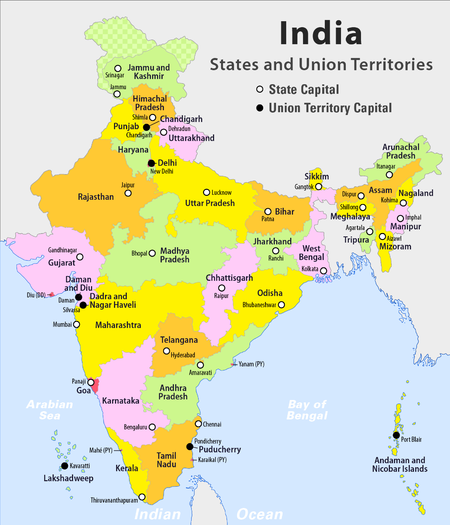General topics for preliminary examination - From TNPSC to UPSC
General topics for preliminary examination - From TNPSC to UPSC
21 General topics for preliminary examination: Indian Polity
We have swum the sea of Polity and managed to reach its final limit. We will now see the main topics in this. Union territories, administration of scheduled and tribal areas (article 244 part 10), etc., to begin with. Our constitution’s part 8 Article 239-241 are about the administration of these scheduled areas. As per those articles, the administration is done by lieutenant governor on behalf of the President. Learn the salient points of related schedules 5 and 6 in depth.
Sample question
Who among the following is empowered to declare an area as a scheduled area?
President (answer)
The lieutenant governor of an area adjacent to the area in question
Governor of that state
Parliament
Next, you need to study the relationship between the centre and states and between states. The legal relationship of the centre and state is governed by articles 245-255 of Part 11, administrative relationship by articles 256-263 of Part 11, and financial relationship by articles 268-293 of Part 12. The subjects on which centre and state can enact laws are given in three lists in our Constitution. These three lists, viz., Union list, State list and Concurrent list, and their contents should be learned well.

Sample question
Statement 1 In our Constitution, external affairs come under Union list
Statement 2 Article 252 states that if more than two states request together, even if a subject comes under State list, the centre can enact a law in that subject.
In this:
1 is correct
2 is correct
Both are correct ( answer )
Both are wrong
Similarly, learn about interstate relations and interstate bodies like Zonal councils and National development council in detail. Next, we shall see the emergency provisions mentioned in articles 352-360 of Part 18. There are three types of emergencies: 1. National emergency (Article 352) 2. State emergency / Governor rule (Article 356) 3. Financial emergency (Article 360). All details of these three are very important. Similarly, learn in detail about all major amendments made so far in our Constitution.
Sample question
Statement 1 By 86th constitutional amendment, right to free and compulsory education of children aged between 6 and 14 was made a fundamental right (Art. 21A)
Statement 2 108th constitutional amendment deals with a reservation for women.
In this:
1 is correct
2 is correct
Both are wrong
Both are correct ( answer )
There are several other spare topics which are very important in Polity, and require our special attention. For instance, Article 370 about Jammu and Kashmir, Election commission of India (Art. 324), UPSC that conducts our examination (Art 315 -323), Finance Commission (Art 380), Comptroller and Auditor General (Art 148), Attorney General (Art 76), Advocate General (Art 165), Planning Commission, National Development Council, NITI Ayog, National Human Rights Commission, National Commissions for Women and SC/ST, Central Information Commission, Central Vigilance Commission, Indian civil services, official languages (part 17), various tribunals, etc., are all extremely important. If we starting making topic-wise notes from the get go, all important areas can be covered in 25-30 topics. With this, we have glanced at all important topics of Polity. Considering this as a foundation, it is up to you to build your own castle of success. Work hard with a focused mind, and in return, you will surely score high in the examination!



Comments
Post a Comment